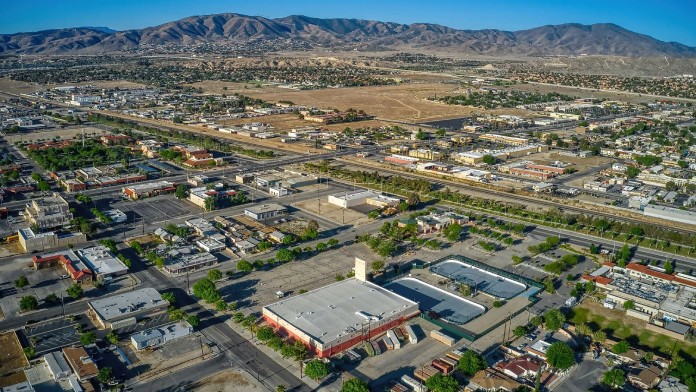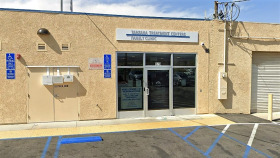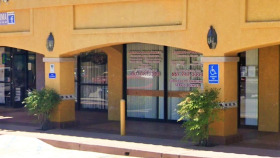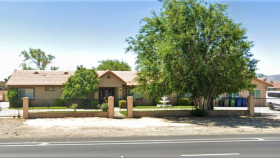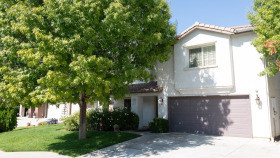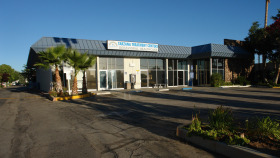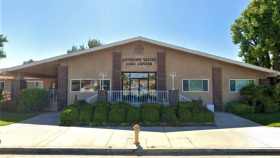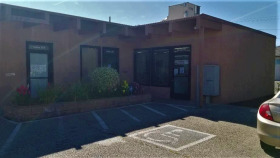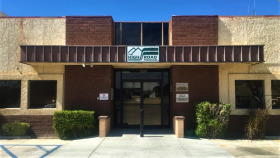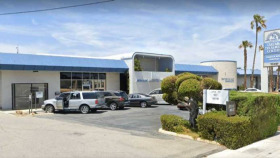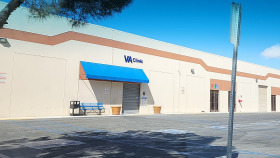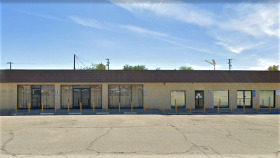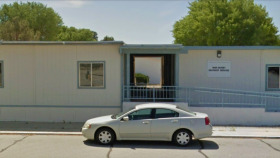Expert Insights
Palmdale and its surrounding Los Angeles County experienced 1,573 opioid overdose deaths in 2021. One of the main culprits behind these deaths is fentanyl. Fortunately, the community is responding to these alarming numbers to prevent future tragedies. Palmdale Neighborhood Houses are providing fentanyl and substance use presentations, where locals can learn about the dangers of fentanyl, receive hands-only CPR training, and get free naloxone. This is the type of response we need – one that offers education and practical support. It’s how we’ll save lives in Palmdale and turn the tide on the opioid epidemic.
~ Kerry Nenn
How Expensive is Drug Rehab in Palmdale?
When considering a Palmdale drug rehab, cost is an important factor. And that cost of care can vary depending on certain key factors. Some of those factors include:
Type of rehab
Amenities
Length of program
Location of rehab
The type of care that you need can determine a huge portion of the cost. For instance, inpatient care is typically more expensive than outpatient due to 24/7 support and the availability of medical detox.
The length of your stay also plays a role in the price you’ll pay. For example, a 30-day stay usually costs less than a 60- or 90-day stay.
Amenities can increase the cost greatly. For instance, a luxury rehab that offers massage therapy, spa-like accommodations, and hiking trails generally costs a lot more than a rehab that provides standard amenities.
The location of your facility is another factor that plays a role in the cost. One tucked away in the mountains or placed on a sandy beach can cost a lot more than one in an urban setting.
Insurance coverage also contributes to the overall price. By law, insurance is required to cover the costs of rehab, but your insurance provider may only cover a portion of the cost leaving you responsible for the rest.
Are There Low-Cost and Free Drug Rehab Centers in Palmdale?
Finding ways to pay for rehab can be a challenge, but you shouldn’t let costs stop you from getting the help you need. You may qualify for free or low-cost care through state-funded programs.
State-funded programs receive financial assistance from the government. These funds help to pay for care for those who have low income or no insurance. If you have low income or no insurance, you may qualify for a state-funded facility.
If you don’t qualify for state-funded rehabs or detox centers in Palmdale, you may apply for a scholarship. A scholarship is a monetary donation given by a center to a qualifying applicant.
Many addiction treatment centers don’t advertise their scholarships, so you should contact your facility of choice to inquire about any availability.
If you find that you are unable to get a scholarship, you can ask the facility about a sliding scale fee schedule. Sliding scale payments are based on your income. If you have a low income, your fee will be lower on a sliding scale schedule.
Insurance can also be a great way to decrease the cost of care. Always contact your insurance provider – whether you have private insurance, Medicaid, or Medicare – to make sure that you are attending a facility that your insurance will cover.
How Does Palmdale Compare in Alcohol and Drug Use?
Located in the Antelope Valley of the Mojave Desert, Palmdale is a vibrant and welcoming community that’s home to over 174,000 residents.1 However, like so many other places around the country, the rising rates of addiction and overdose deaths are a major concern. If you or someone you love is battling alcohol or substance use disorder, getting professional treatment could save your life. There are more than 10 accredited alcohol and drug rehab centers in Palmdale and the surrounding area that can help you live a healthy, sober life.2
Here are stats for Palmdale and Los Angeles County drug and alcohol misuse and addiction:1,2

Nearly 62% of residents who sought treatment did so for heroin and methamphetamine use.

5% of people in rehab are between 12 and 17 years old.
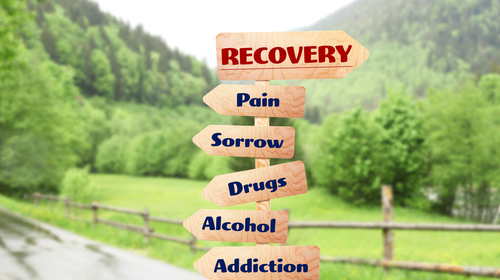
Over 35,000 people received addiction treatment in Palmdale and Los Angeles County.

The county reports over 2,400 accidental drug overdose deaths per year.
Alcohol and Drug Laws in Palmdale
It is a crime to possess and/or use illegal substances in the state of California. It is also a crime to use alcohol and operate a motor vehicle. California laws prohibit the use of any substances that will impair your judgment while operating a motor vehicle.
Good Samaritan Drug Overdose Act: Like most states, California has revamped its Good Samaritan law to include individuals experiencing a substance-related emergency. Under this law, individuals will receive a certain level of protection from prosecution when seeking emergency medical assistance for themselves or someone else. This includes individuals that are also under the influence and/or have illicit substances on their person (to a certain extent) or have paraphernalia. The goal is to ensure that those experiencing an overdose receive emergency care rather than becoming another fatality due to fear of the law.
AB 1535: Pharmacy Naloxone Bill: Another state-wide bill that California has passed is the Pharmacy Naloxone Bill. This bill provides public access, through participating pharmacies, to naloxone for opioid overdose reversal. Initially, naloxone could only be obtained by prescription or via health care professionals and authorities.
CA Proposition 47: California’s Proposition 47 aims to reclassify felony drug offenses down to misdemeanors where applicable. It should be noted that misdemeanors for drug possession still come with serious consequences, including time served. The goal of Proposition 47 is to enforce the laws surrounding drug possession in a way that doesn’t have to ruin young people’s lives. However, felony charges may still apply depending on the substance in question, its quantity, and how many offenses the individual in question has.
The California Ethical Treatment for Persons with Substance Use Disorder Act: SB 349 provides stronger patient protections for those seeking substance use disorder treatment. It requires every provider in the state to provide a client bill of rights, which ensures those seeking care are provided basic rights and protection in a setting, safe and ethical. It also prohibits providers from using false or misleading advertising.
Choosing the Right Level of Care
Detox
Performed under medical supervision, detox is the process of comfortably and safely removing substances from your system. Once detox is complete, you can transition to addiction treatment services.
Inpatient Drug and Alcohol Rehab
Inpatient treatment, also called residential rehab, provides 24/7 care while you live at a rehab facility. Typical treatment services include individual and group therapy, medication, and nutritional counseling.
Partial hospitalization programs (PHPs)
PHPs offer many of the same treatment services as inpatient care, but you return home during non-treatment times. This type of treatment often serves as a bridge between inpatient and outpatient care.
Intensive Outpatient Programs (IOPs)
IOPs are a step down from PHPs. With this type of program, you attend counseling several days each week while spending the rest of your time at home, at work, or fulfilling other obligations.
Standard Outpatient
Standard outpatient care is the least intensive option. It involves a couple of hours of treatment each week. It is appropriate for Florida residents who are highly motivated and have a strong support system.
Aftercare
Aftercare, or relapse prevention, starts after a rehab program is complete. It provides ongoing support such as sober living homes and 12-step support groups.
Finding Specialized Drug Rehabs in Palmdale
The first step to long-term recovery starts with choosing the right facility for you. Fortunately, you can choose from many different types of rehab to match your unique needs.
LGBTQ+
Rehabs that specialize in treating members of the LGBTQ+ community provide a safe space for patients to recover from drug and alcohol addiction. Providers also understand challenges unique to this community, such as internalized homophobia and transphobia, family rejection, social exclusion, and discrimination.
Faith-Based
Faith-based rehab programs offer a spiritual approach to addiction recovery, integrating prayer groups and literature studies into treatment plans. If your religion is important to you, you may want to consider finding a spiritual rehab.
Men-Only
Men-only rehab programs exclusively treat men who are recovering from addiction. Men are often stigmatized or judged for being “weak” for seeking treatment, and men-only treatment programs understand these challenges and can cater treatment specifically for their needs.
Women-Only
Women-only rehabs specialize in treating women and provide a safe space for women to process and recover, especially for those who may have experienced sexual assault or abuse from a male partner or loved one.
Teen
Teen rehabs understand the importance of adolescents and teens having their own space for addiction recovery in which they can support one another from an understanding and empathetic place. Teens may have different treatment needs than adults, such as help with family dynamics, co-occurring mental health disorders, and education.
Young Adult
Young adult rehabs specialize in treating people between the ages of 18 and 30 years old, addressing unique challenges and risk factors, such as academic stress, thrill-seeking behaviors, drug experimentation, and more.
Luxury
Luxury rehabs provide patients with a relaxing resort-like environment to jumpstart their addiction recovery. Every luxury treatment program is different but they typically provide upscale features, such as swimming pools, massage therapy, spa treatment, equine therapy, gourmet meals, and more.
Executive
Executive rehabs specialize in treating working professionals who need to continue working while recovering from drug or alcohol addiction. They typically combine the upscale features and setting of a luxury rehab with practical amenities, such as high-speed internet, private workrooms, and more.
How to Choose the Right Palmdale Drug Rehab
Choosing the right drug or alcohol rehabs in Palmdale for you is an important first step to starting your recovery journey. You should consider some important factors, including:
Treatment setting (inpatient or outpatient)
Features and amenities (luxury or standard rehab facility)
Duration of program (30, 60, or 90 days)
Health insurance plan
Choosing a rehab facility in-network with health insurance provider
Government funding
Location (city vs. suburb)
The cost of rehab is one of the biggest factors to consider when starting your search for the right center for you. The price can be made more manageable by understanding all fees associated with your facility of choice and by using your insurance.
The location of the facility is also important. For example, you may find that an urban setting isn’t helpful for your recovery journey. If this is the case, choosing a secluded rural location can help you on the road to long-term recovery.
Certain programs have an ideology or philosophy they adhere to when treating patients. Make sure that you understand and agree with a facility’s treatment philosophy before attending. For example, if you don’t have a mental illness choosing to attend a dual-diagnosis program may not be best for your recovery.
Most addiction treatment centers have a set of rules that you will be expected to follow as you go through care. For example, you may not be able to have your phone or speak with friends after a certain time of day or night. Make sure that you understand and agree with all rules and regulations before attending.
Amenities and features can help to distinguish one rehab from the rest. For example, one may have a swimming pool, while another may offer nutritional counseling. If certain amenities are important to you for your recovery journey, make sure that the one you choose to attend has those amenities and features.
Should You Travel for Drug and Alcohol Rehab in Palmdale?
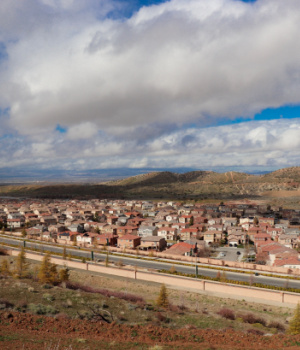 Palmdale is a peaceful, family-friendly city with lots to do and explore. You may wonder if traveling to Palmdale drug rehabs is best for you. Located north of major cities like Los Angeles and Pasadena, this quiet city has lots to offer.
Palmdale is a peaceful, family-friendly city with lots to do and explore. You may wonder if traveling to Palmdale drug rehabs is best for you. Located north of major cities like Los Angeles and Pasadena, this quiet city has lots to offer.
Some reasons why you may choose to visit Palmdale for rehab include3:
- Historical state parks
- Natural forest preserves
- Family-friendly water parks
- Must-see museums and art galleries
- Close to Disneyland and Universal Studios
- 90 minutes away from the beach
Palmdale has many exciting and must-see attractions if you are considering traveling to Palmdale for rehabilitation:
If getting a taste of the county is important to you on your recovery journey, consider Rancho Vista. This exciting neighborhood has three different parks chock full of amenities for both kids and adults alike. It also has the Rancho Vista Golf Course.
If flight and technology are helpful for you on your road to recovery, check out the Jim Davies Heritage Park located on Avenue P. This aviation history park has plenty of exhibits and information for the keenest flight enthusiast.
If shopping is a crucial part of your long-term recovery, consider the Antelope Valley Mall. With over 120 stops to choose from, you’ll find something special to help you celebrate your road to recovery. There are also a number of eateries for you to enjoy.
Resources
- Palmdale, California Population 2021 (Demographics, Maps, Graphs). (n.d.). Worldpopulationreview.com.
- FindTreatment.gov. (n.d.). FindTreatment.gov.
- County of Los Angeles Public Health. Patients in Publicly Funded Substance Use Disorder Treatment Programs in Los Angeles County.(2021).
- County of Los Angeles Public Health. Accidental Drug Overdose Deaths in Los Angeles County during the Covid-19 Pandemic. (2021).
- City of Palmdale. Living & Visiting | Palmdale, CA. (2022).
- Camp, J., Vitoratou, S., & Rimes, K. (2020). LGBQ+ Self-Acceptance and Its Relationship with Minority Stressors and Mental Health: A Systematic Literature Review. Archives Of Sexual Behavior, 49(7), 2353-2373.
- California Legislative Information. (2022). Codes Display Text.
- State of California: Department of Motor Vehicles. California Driver Handbook [Ebook]. (2022).
- Weinstein, S. (2022). Good Samaritan Overdose Prevention Statutes.

